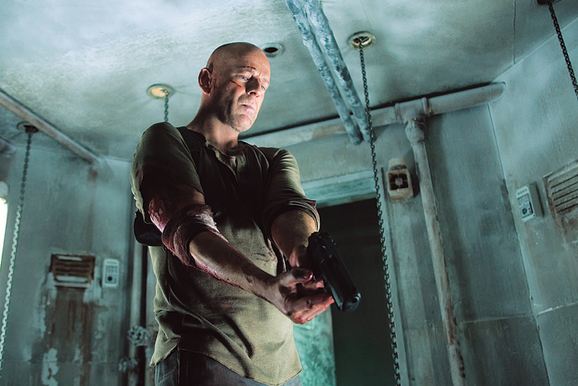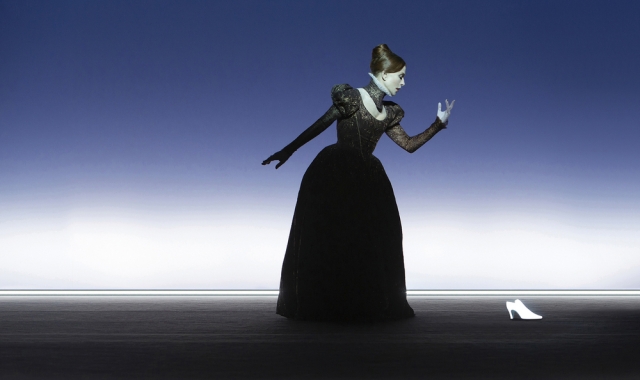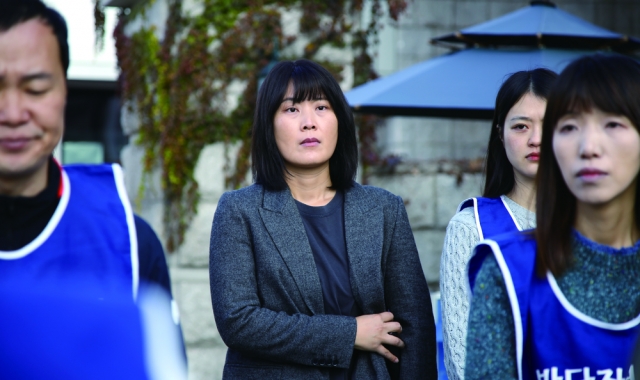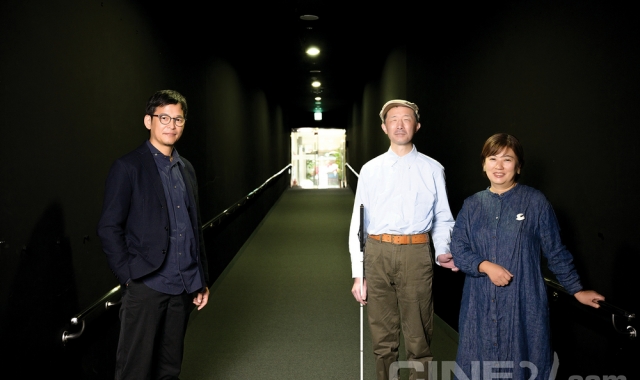
미국이 사이버테러리즘을 모면하게 되는 <다이하드4.0>을 얼마 전에 보러 갔다. 최악의 것을 기대하고 갔다. 왜냐하면 영화는 (별로 진보주의적 정치색으로 알려지지 않은) 이십세기 폭스사에서 자금을 댔고, (역시 진보주의적 정치색으로 알려지지 않은) 브루스 윌리스가 주연했으며, <다이하드> 프랜차이즈의 이전 두편은 이제는 고전이 된 본편에 전혀 미치지 못했기 때문이다.
그러나 첫째, <다이하드4.0>은 스토리와 캐릭터를 뒷받침하는 특수효과와 깔끔한 대본으로 이루어진 끝내주는 액션영화다. 둘째, 미국의 힘과 그것이 적대적인 세계에서 ‘자유’를 지키기 위해 투쟁하는 것에 대한 깃발 흔들어대는 애국찬가가 아니다. 오히려 자기 국경 내에서 살아남고자 투쟁하는 미국, 그리고 그 나라의 아킬레스건인 컴퓨터와 테크놀로지에의 의존에 대한 영화이다. 셋째, 나라는 화력과 군사력이 아니라 다만 자기 일을 하고 있는 것뿐이라고 계속해서 말하는 한 고집 세고 고독한 영웅의 노력에 의해 수호된다.
모든 나라는 자기 영화 속 영웅들이 각각 있고, 미국은 그 어떤 다른 나라보다 많기는 하다. 그렇지만 살아남기 위해서 영웅들 또한 시대에 따라 변할 필요가 있다. 영국의 제임스 본드는 이제 그의 본질적인 영국인 우월감만큼이나 운동능력에 의존하는 포스트모던 영웅이 됐으며, 그에 상응하는 프랑스의 마스터 스파이 OSS 117은 지난해 <OSS 117: 카이로, 네스트 오브 스파이스>(OSS 117: Cairo, Nest of Spies)에서 자신의 시대적 배경인 50~60년대 관점으로는 그 현대적 농담을 알아차릴 수 없는, 스스로를 풍자하는 프랑스판 오스틴 파워로 훌륭하게 재탄생했다.
브루스 윌리스가 연기하는 이 노동자 경찰은 <다이하드> 본편에서는 세계의 다른 나라들에 미국의 가치관들을 강요하기보다는 마지못해 영웅 역을 맡은 이로서 자기 일을 다하고 가족에 성실히 하는 것과 같은 기본적인 미국 가치관들을 옹호하는 사람이었다. 미국영화의 고전영화 영웅들처럼 그는 그저 5시 퇴근 시간이 되면 집 가기를 원할 뿐이었다. <다이하드4.0>은 본래의 공식으로 돌아간다. 윌리스가 맡은 영웅은 늘 우리에게 그가 아무런 ‘계획’도 없었다는 것을 상기시킨다. 그는 단지 나쁜 놈을 죽이고 자기 삶으로 돌아가길 원할 뿐. 현재 미국의 지정학적 풍경 속에서 그는 이제 포스트모던해 보인다. 그러나 사실 그는 단지 구식일 뿐이다.
이 영화는 미국인 감독 렌 와이즈먼이 연출했는데 그는 장르영화(<언더월드>의 포스트모던한 흡혈귀영화 두편)와 유럽적 감수성(<언더월드> 시리즈 두편 모두 유럽에서 찍었으며, 와이즈먼은 영국 여배우 케이트 베킨세일과 결혼했음)에 뿌리를 둔 사람이다. 이 영화의 나쁜 놈에는 아시아인과 유럽인들도 포함돼 있지만, 핵심 악당은 어디를- 즉 은행계좌를 - 치면 자신의 국민들에게 가장 큰 타격을 가할 수 있을지를 아는 100% 미국인이다. 영화 내내 마지못해 하는 브루스 윌리스의 조수는 역시 현재 미국의 적의 목록에 올라와 있는 이슬람 테러리스트와 영화 저작권 약탈자들에 가까운 인물이다. 그는 자기 나라 정부와 주류 언론을 불신하는 컴퓨터 해커다.
할리우드 메이저 스튜디오 영화제작이란 항상 단순히 정치적 메시지를 전하는 것만큼 돈 버는 것을 중시해왔다. <다이하드4.0>은 자국뿐만 아니라 해외시장에도 호소력을 갖추도록 설계된 영리한 대중오락물이다. 이 영화는 미래를 내다보고선 열성봉공 정신은 잘 팔리지 않는다는 것을 깨달은 것이다. 이런 점에서 요즘 일본과 남한에서 제작되고 있는 민족주의적인 블록버스터보다 훨씬 앞선 것이다.
작고한 중국 감독 호금전은 60년대 중국 무협영화 장르는 제임스 본드와 같은 서구 영웅의 영화적 지배에 대한 응답으로 재창조한 것이라고 말한 적이 있다. 각각의 영화산업은 자기만의 영화 영웅을 필요로 한다. 그 영웅들을 전세계에 통할 수 있는 캐릭터로 만드는 것 또한 요령이다.
The other day I went to see "Die Hard 4.0", in which the U.S. is saved from cyber-terrorism. I went expecting the worst: the film is financed by Twentieth Century-Fox (not known for its liberal politics), the film stars Bruce Willis (not known for his liberal politics) and the previous two episodes in the "Die Hard" franchise had miserably failed to live up to now-classic original film.
But first, "4.0" is a hell of an action movie, leanly scripted and with special effects which serve the story and characters. Second, it is not a flag-waving hymn to U.S. might and its battle to maintain "freedom" in a hostile world; it's about the U.S.' battle for survival within its own borders and the country's Achille's Heel of its reliance on computers and technology. Third, it isn't saved by its firepower and military might, but by the efforts of one stubborn, solitary hero who keeps saying he's just doing his job.
Every country has its local celluloid heroes, and the U.S. more so than any other. But to survive, heroes also need to change with the times. The U.K.'s James Bond is now a post-modern hero, who relies as much on his athleticism as on his innate sense of British superiority; France's equivalent, master-spy OSS 117, was brilliantly reinvented last year, in "OSS 117: Cairo, Nest of Spies", as an ironic Gallic version of Austin Powers who can't see the modern joke from his '50s/'60s perspective.
Willis' working-stiff cop was a reluctant hero in the original "Die Hard", championing basic American values like getting the job done and family loyalty, rather than forcing American values on the rest of the world. Like U.S. cinema's classic movie heroes, he just wanted to get home at 5 o'clock. "4.0" goes back to that original formula: Willis' hero is always reminding us he has no "plan": he just wants to kill the bad guy and go back to his life. In the current U.S.' geopolitical landscape, he now looks post-modern; in fact, he's simply old-fashioned.
The film was directed by Len Wiseman, an American with roots in genre cinema (the two "Underworld" post-modern vampire movies) and strong European sensibilities (both of the "Underworld" films were shot in Europe and Wiseman is married to British actress Kate Beckinsale). The bad guys in the film include Asians and Europeans; but the main villain is 100% American who knows how to to hit his own people where it hurts most - in their bank accounts.
Willis' reluctant sidekick throughout the movie is also someone who, in the current list of America's enemies, is almost up there with Islamic terrorists and movie pirates: he's a computer hacker who mistrusts his own country's government and mainstream media.
Hollywood major-studio moviemaking has always been as much about making money as about simply making political messages, and "4.0" is a clever piece of mass entertainment designed to appeal to foreign markets as much as the domestic one. It's a movie that's seen the future and realises gung-ho doesn't sell. In that respect, it's way ahead of the current nationalistic blockbusters that Japan and South Korea have been making.
The late Chinese director King Hu [Hu Jinquan] once said that he reinvented the Chinese martial arts genre during the '60s as a response to the cinematic domination of western heroes like James Bond. Every film industry needs its own celluloid heroes. The trick is to make them with characteristics that also resonate worldwide.






